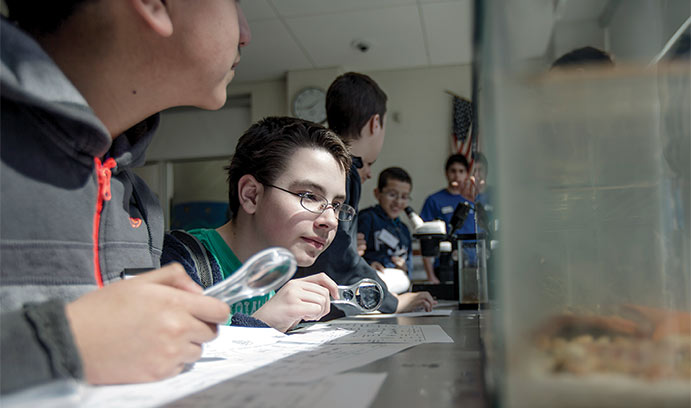Schoolers Learn by Doing

Schoolers learn by doing with project-based learning.
Aristotle expressed the belief that people learn best by doing. “For the things we have to learn before we can do them, we learn by doing them.”
So too is it with project-based learning, where students learn not by memorizing facts and taking tests, but by delving into projects, making mistakes and solving problems as part of a larger project.
“It is like real life,” says Scott Garrigan, professor of practice of Teaching, Learning & Technology. “As you work on a real project, problems come up, and as you resolve those problems, you get a deeper sense of learning.”
Garrigan and doctoral student Farah Vallera are teaching this education style to middle school science teachers in the Allentown School District as it transitions to more project-based learning and incorporates more science, technology, engineering, and math (STEM) into its curricula.
Research has shown that project-based learning can improve retention and students’ attitudes toward learning when implemented correctly.
Vallera, who has been practicing project-based learning in her sociology classes and with K-12 students at an agricultural education center, is coaching teachers in ASD’s four middle schools for 20 hours a week.
“Many of the teachers are already doing really exciting projects their students love, but often as concluding events following traditional instruction,” says Vallera. She is instructing teachers on how to incorporate project-based learning throughout the project with hands-on tasks that require creative problem-solving and collaboration.
“Overall,” she says, “I’m hoping to get teachers as excited about project-based learning as I am.
Story by Elizabeth Shimer Bowers
Posted on:


